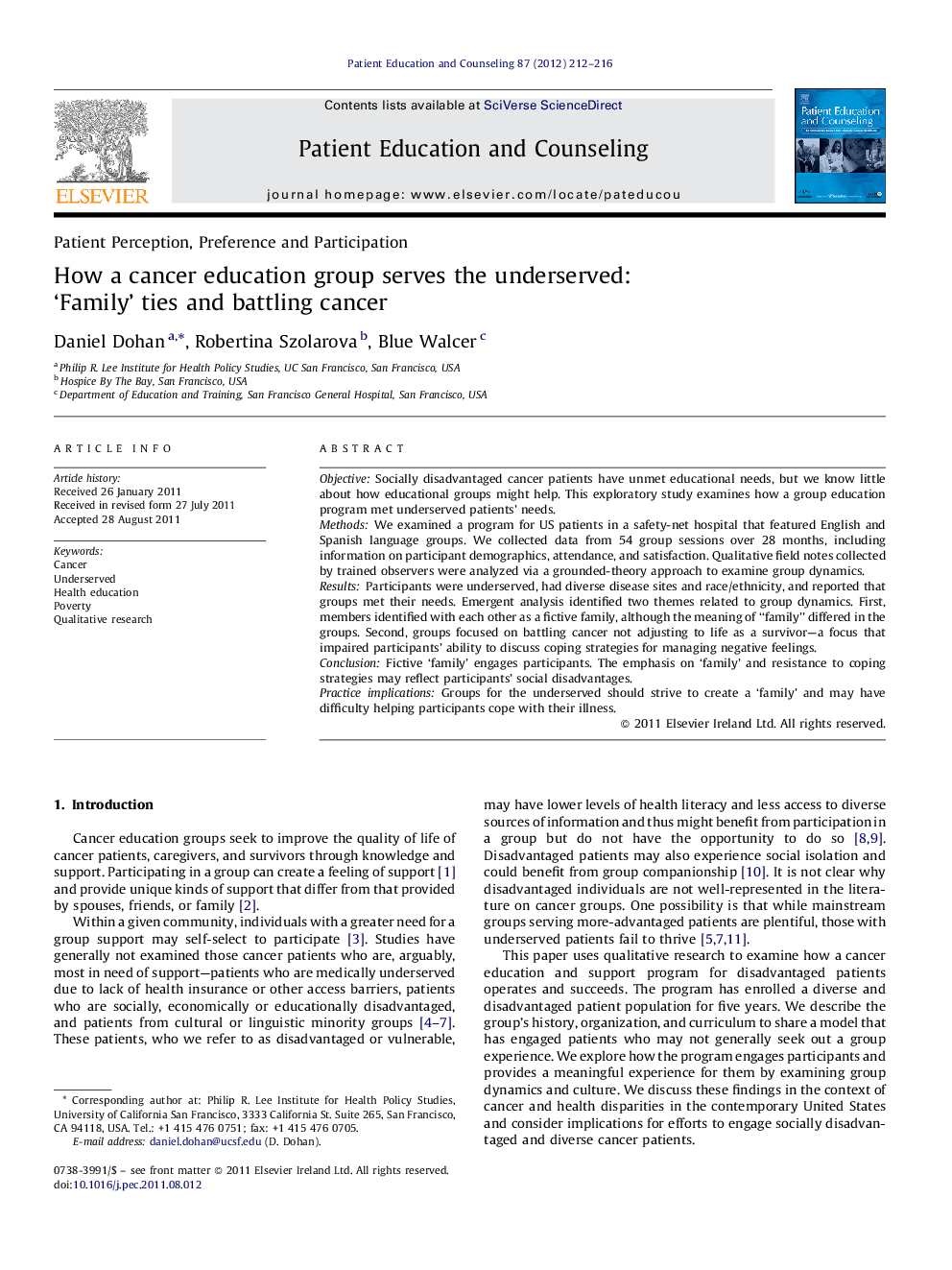| Article ID | Journal | Published Year | Pages | File Type |
|---|---|---|---|---|
| 3814476 | Patient Education and Counseling | 2012 | 5 Pages |
ObjectiveSocially disadvantaged cancer patients have unmet educational needs, but we know little about how educational groups might help. This exploratory study examines how a group education program met underserved patients’ needs.MethodsWe examined a program for US patients in a safety-net hospital that featured English and Spanish language groups. We collected data from 54 group sessions over 28 months, including information on participant demographics, attendance, and satisfaction. Qualitative field notes collected by trained observers were analyzed via a grounded-theory approach to examine group dynamics.ResultsParticipants were underserved, had diverse disease sites and race/ethnicity, and reported that groups met their needs. Emergent analysis identified two themes related to group dynamics. First, members identified with each other as a fictive family, although the meaning of “family” differed in the groups. Second, groups focused on battling cancer not adjusting to life as a survivor—a focus that impaired participants’ ability to discuss coping strategies for managing negative feelings.ConclusionFictive ‘family’ engages participants. The emphasis on ‘family’ and resistance to coping strategies may reflect participants’ social disadvantages.Practice implicationsGroups for the underserved should strive to create a ‘family’ and may have difficulty helping participants cope with their illness.
